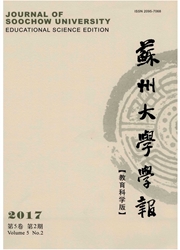

 中文摘要:
中文摘要:
从廉政文化到廉洁文化,我国城市廉洁文化建设的评估内容、方式发生了一系列的变化,以预防为主的廉洁文化评估的重要性日益彰显。如何克服参评人员的社会称许性以保证评估工作的切实有效,历来是世界各国共同面对的难题之一。为解决这一问题,本研究首先开展了纪检干部廉洁胜任行为模型的探索,并获得了廉洁文化建设的评估指标体系要素,在此基础上,编制完成了基于行为等级锚定和问卷调研相结合的廉洁文化评估系统。**通过配对取样,对重庆市渝中区党政机关和11个下属街道办事处1 579名有效被试(含纪检干部、街道办事处干部以及社区民众)进行了廉洁文化建设成效的评估。评估结果验证了廉洁文化建设过程中诚信领导与组织公民行为之间的有调节的中介模型,在廉洁文化建设过程中,诚信领导的作用至关重要,道德文化对于激发组织公民行为的作用也不容忽视,这为后期公务人员培训体系的构建提供了理论与方法的支持。
 英文摘要:
英文摘要:
The evaluation of the construction of clean and honest urban culture in China has been evolving. How to avoid the social desirability during evaluation in order to achieve an effective result is a worldwide problem. To address this issue, this study compiled an evaluation system which includes behaviorally anchored rating scales and mature scales based on competency model of civil servants, then surveyed 1579 respondents in the Yuzhong district of Chongqing, including Party and government officials, grassroots civil servants as well as community masses by paired sampling. The results prove the effectiveness of this evaluation system and verify that this system can avoid social desirability to a certain degree. They also validate the mediated moderation model between integral leadership and organizational citizenship behavior during the processing of clean and honest culture construction, which further benefits the investigation of the relationship among indexes in this evaluation system. Findings of this study also highlight the importance of integral leadership as well as ethical culture, which provides both theoretical and practical supports for the construction of civil servant training system.
 同期刊论文项目
同期刊论文项目
 同项目期刊论文
同项目期刊论文
 期刊信息
期刊信息
